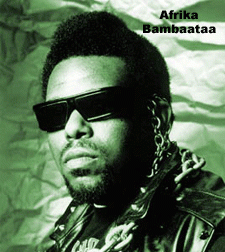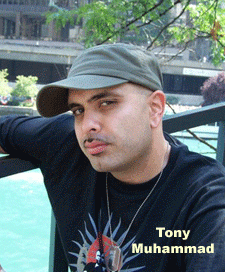 The marked end of The Mayan Calendar on December 21st, 2012 as noted in the KRS-One song Aztechnical does not mean that life on planet Earth itself is going to end any time soon due to cataclysmic events. But rather, just as many Biblical Prophecies, Qur’anic Prophecies, the pyramid prophecies of Ancient Egypt (Kemet), the end of The Age of Pisces/beginning of the Age of Aquarius and other prophetic histories that are “written in advanced,” the end of The Mayan Calendar points to, above all else, the end of an old state of being and the steady movement towards a new age of spiritual and intellectual Awakening; into the very nature and reality of Self.
The marked end of The Mayan Calendar on December 21st, 2012 as noted in the KRS-One song Aztechnical does not mean that life on planet Earth itself is going to end any time soon due to cataclysmic events. But rather, just as many Biblical Prophecies, Qur’anic Prophecies, the pyramid prophecies of Ancient Egypt (Kemet), the end of The Age of Pisces/beginning of the Age of Aquarius and other prophetic histories that are “written in advanced,” the end of The Mayan Calendar points to, above all else, the end of an old state of being and the steady movement towards a new age of spiritual and intellectual Awakening; into the very nature and reality of Self.
This is the consciousness and manifestation of God in the person of human being, which is also known as “The Hereafter.” This is not talking about a state of consciousness that we experience after we physically die, but an actual physical condition experienced here on Earth while we are still living. Furthermore, “The Hereafter” is a state of being in which we are actively working to manifest The Divine in any way imaginable, while continuously removing obstructions that impede our progress from achieving this Ultimate Goal. As Edgar Cayce, a legend within the New Thought Movement, said “For you grow to heaven, you don’t go to heaven. It is within thine own conscience that ye grow there …”
http://www.youtube.com/watch?feature=player_embedded&v=5M7MZh_bvjg
Hip Hop, as a culture and as a community, must move in this direction of Divine Order if it stands a chance to survive. Movement towards The Divine, in this sense, is not a partial occurrence, as it has been experienced in the Movement in the past (particularly in the late 1980s and throughout the 1990s). Rather, The Time we are living in warrants a holistic change, incorporating all aspects of living – from the way that we think, perform, eat and even rest.
In essence, the root of making all things new in our way of life derives from what The Honorable Minister Louis Farrakhan has referred to as The Most Powerful Creative Force which is Love, The Building Blocks that gave shape and form to the very Universe itself. We along with everything in Creation itself exist because of Unconditional Love, which is Biblically synonymous with The Creator of The Heavens and The Earth Himself.
“The one who does not love does not know God, for God is love.” (1 John 4:8).
 It is because of Unconditional Love for the people, that one of the most influential Founding Fathers of Hip Hop culture, Afrika Bambaataa, was able to end gang violence in The South Bronx in the early 1970s. It was gang violence that was leading to heightened levels of death among the youth. In a gradual process, after entering into Divine Knowledge that he had learned from different communities at the time, including The Nation of Islam, The Nation of Gods and Earth and The Moorish Science Temple. He utilized that knowledge to separate the darkness (or condition of gross ignorance) that lurked in his own mind and discovered the Divine Light that was buried within him the whole time of his own existence. From there, he summoned the Divine Forces within himself and all of the Forces outside of himself. They manifested themselves in the form of the gang members in the community, which he considered to be his family. He called for peace, and established it under the banner of the first Hip Hop activist organization called Universal Zulu Nation.
It is because of Unconditional Love for the people, that one of the most influential Founding Fathers of Hip Hop culture, Afrika Bambaataa, was able to end gang violence in The South Bronx in the early 1970s. It was gang violence that was leading to heightened levels of death among the youth. In a gradual process, after entering into Divine Knowledge that he had learned from different communities at the time, including The Nation of Islam, The Nation of Gods and Earth and The Moorish Science Temple. He utilized that knowledge to separate the darkness (or condition of gross ignorance) that lurked in his own mind and discovered the Divine Light that was buried within him the whole time of his own existence. From there, he summoned the Divine Forces within himself and all of the Forces outside of himself. They manifested themselves in the form of the gang members in the community, which he considered to be his family. He called for peace, and established it under the banner of the first Hip Hop activist organization called Universal Zulu Nation.
But just in the very nature of Love being a creative force he also summoned all of the Divine Expressions or Elements in the environment that also lurked in the dark (DJing, Emceeing, Breaking, Graffiti) and gave them aim, purpose, shape and form into the Universal Cultural Expression known as Hip Hop. Afrika Bambaataa himself says in an interview with East-3.com, which was featured on Daveyd.com:
 “It is Afrika Bambaataa to whom named and called each entity of BBoys/BGirls/DJaying/MCs/Aerosol Writing and adding The Most important Knowledge as the main Element of Hip Hop Culture and Brother KRS One helped to add more, with a few other as Plus Elements to the main Key elements of Hip Hop Culture. No one else never used or thought of naming each entity of the Culture an Element or to say that this Movement that we all are doing is called Hip Hop Culture or to recognize it as a World Movement. The Birth of this movement is The Bronx, New York City, New York Republic, but Rap is as Ancient as The creation of Humans itself.”
“It is Afrika Bambaataa to whom named and called each entity of BBoys/BGirls/DJaying/MCs/Aerosol Writing and adding The Most important Knowledge as the main Element of Hip Hop Culture and Brother KRS One helped to add more, with a few other as Plus Elements to the main Key elements of Hip Hop Culture. No one else never used or thought of naming each entity of the Culture an Element or to say that this Movement that we all are doing is called Hip Hop Culture or to recognize it as a World Movement. The Birth of this movement is The Bronx, New York City, New York Republic, but Rap is as Ancient as The creation of Humans itself.”
As noted by Afrika Bambaataa himself, this Divine Process falls in line with the great tradition of Motion of The Ancients themselves. It goes as far back as The Great River Valley Civilizations of Kemet, Arabia, Sumeria and China in which the richness of the environment was extracted from (cultivated), given form, given aim and given purpose. And even long before that, it is in line with the actual Self-Creation of The Creator Himself, separating Triple Darkness from Light, and giving Himself and the Universe form using the very rich aquatic material found in the Triple Darkness itself. This Divine process mentioned in a coded way in both Bible and Holy Qur’an:
“He has inscribed a circle on the surface of the waters At the boundary of light and darkness.” (Job 26:10)
“Praise be to Allah, Who created the heavens and the earth, and made darkness and light. Yet those who disbelieve set up equals to their Lord. He it is Who created you from clay, then He decreed a term. And there is a term named with Him; still you doubt.” (Holy Qur’an 6:1 – 2)
Just as it was in these Noble Divine Beginnings, so it can be with Hip Hop once again. The culture overall has fallen in a state of spiritual darkness and has stayed there for well over a decade. It’s most illuminating voices have been kept buried, hence “Underground.” But now, it just takes one with unconditional love within an organization, a town or a city to have the courage to unbury these luminaries, bring them together and put their gifts and talents to use for what they are Divinely intended to fulfill – UPLIFT HUMAN BEINGS, FAMILIES AND COMMUNITIES TO THEIR GREATEST POTENTIAL! ARE YOU THE ONE THAT CAN FULFILL THIS?
Tony Muhammad has been teaching Social Studies in Miami-Dade County Public Schools for over 10 years and is currently involved in The MIA (Music Is Alive) Campaign for the development of the National Hip Hop Day of Service. Tony is most noted for his work as publisher of Urban America Newspaper (2003 – 2007) and co-organizer of the Organic Hip Hop Conference. He currently serves as a student assistant minister to Student Minister Rasul Hakim Muhammad at Muhammad Mosque #29 in Miami, Florida.
original article: http://tonymuhammad.wordpress.com/2013/01/01/separating-the-darkness-so-that-we-may-see-the-light-guidance-for-the-hip-hop-community-in-2013-and-beyond/
http://www.youtube.com/watch?v=A4Yv1ay0CmM
 With much of our attention focused on the gun debate, Newtown, Ct and NRA (National Rifle Association) head Wayne Lapierre talking about how music, movies and video games have caused gun violence, many of us are also talking and asking hard questions.
With much of our attention focused on the gun debate, Newtown, Ct and NRA (National Rifle Association) head Wayne Lapierre talking about how music, movies and video games have caused gun violence, many of us are also talking and asking hard questions.
 One of the best and most timeless songs dealing with gun violence comes from Oakland rapper Frank J.. He was a member of a crew called Legion of Une (Union City) which later became 187 Fac.. The song Brotha Put the Gun Away, was Frank J recounted all his friends who died and how he decided to put the gun away. He talks about real life incidents that took place in Oakland and around the Bay Area including losing his brother.. It’s a powerful song..the lyrics are searing.. I wish more folks would do songs like this..
One of the best and most timeless songs dealing with gun violence comes from Oakland rapper Frank J.. He was a member of a crew called Legion of Une (Union City) which later became 187 Fac.. The song Brotha Put the Gun Away, was Frank J recounted all his friends who died and how he decided to put the gun away. He talks about real life incidents that took place in Oakland and around the Bay Area including losing his brother.. It’s a powerful song..the lyrics are searing.. I wish more folks would do songs like this.. Another cut that deals with Gun Violence comes from Public Enemy… Its called Whatcha Gonna Do.. The song is incredible where Chuck D talks about how we keep shooting each other.. Some of the lyrics are as follows:
Another cut that deals with Gun Violence comes from Public Enemy… Its called Whatcha Gonna Do.. The song is incredible where Chuck D talks about how we keep shooting each other.. Some of the lyrics are as follows:


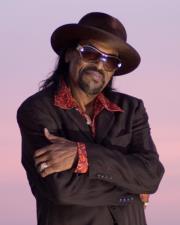
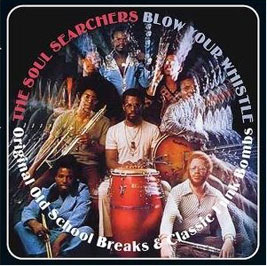


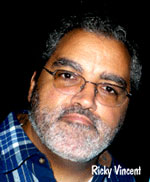
 When James Brown entered the scene all that changed. He delivered the drum front and center. Vincent noted that James Brown brought out a more prominent rhythmic foundation for the music and introduced the important concept of ‘Hitting on the One’. James Brown focused his entire band including the complex horn, rhythm guitar and keyboard arrangements of his band mate Fred Wesley, Pee Wee Ellis and Nat Jones to ‘deliver on the one’. James Brown punctuated his efforts by using his voice with his vintage grunts, groans and screams as a binding force which also drew everything ‘on the one’. It seems so simple and commonplace today, but back then it was ground breaking.
When James Brown entered the scene all that changed. He delivered the drum front and center. Vincent noted that James Brown brought out a more prominent rhythmic foundation for the music and introduced the important concept of ‘Hitting on the One’. James Brown focused his entire band including the complex horn, rhythm guitar and keyboard arrangements of his band mate Fred Wesley, Pee Wee Ellis and Nat Jones to ‘deliver on the one’. James Brown punctuated his efforts by using his voice with his vintage grunts, groans and screams as a binding force which also drew everything ‘on the one’. It seems so simple and commonplace today, but back then it was ground breaking.




